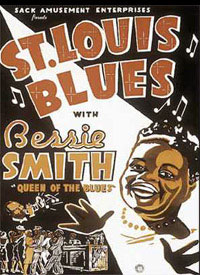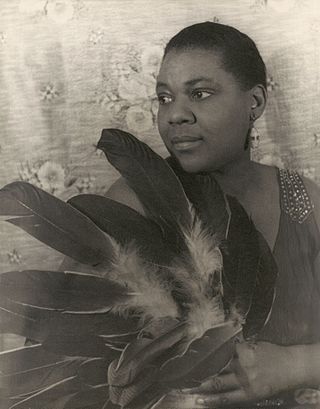
Bessie Smith was an African-American blues singer widely renowned during the Jazz Age. Nicknamed the "Empress of the Blues", she was the most popular female blues singer of the 1930s. Inducted into the Rock and Roll Hall of Fame in 1989, she is often regarded as one of the greatest singers of her era and was a major influence on fellow blues singers, as well as jazz vocalists.

William Christopher Handy was an American composer and musician who referred to himself as the Father of the Blues. He was one of the most influential songwriters in the United States. One of many musicians who played the distinctively American blues music, Handy did not create the blues genre but was the one of the first to publish music in the blues form, thereby taking the blues from a regional music style with a limited audience to a new level of popularity.
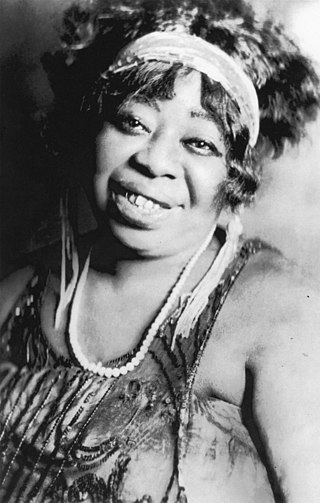
Gertrude "Ma" Rainey was an American blues singer and influential early-blues recording artist. Dubbed the "Mother of the Blues", she bridged earlier vaudeville and the authentic expression of southern blues, influencing a generation of blues singers. Rainey was known for her powerful vocal abilities, energetic disposition, majestic phrasing, and a "moaning" style of singing. Her qualities are present and most evident in her early recordings "Bo-Weevil Blues" and "Moonshine Blues".
Clara Smith was an American classic female blues singer, billed as the "Queen of the Moaners", although she had a lighter and sweeter voice than many of her contemporaries. Clara Smith was not related to the singers Bessie Smith and Mamie Smith.

"The Saint Louis Blues" is a popular American song composed by W. C. Handy in the blues style and published in September 1914. It was one of the first blues songs to succeed as a pop song and remains a fundamental part of jazz musicians' repertoire. Benny Goodman, Louis Armstrong, Cab Calloway, Bing Crosby, Bessie Smith, Eartha Kitt, Count Basie, Glenn Miller, Guy Lombardo, Peanuts Hucko, Art Tatum, and the Boston Pops Orchestra are among the artists who have recorded it. The song has been called "the jazzman's Hamlet". Composer William Grant Still arranged a version of the song in 1916 while working with Handy.
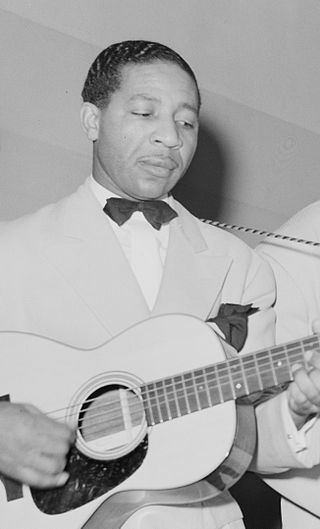
Alonzo "Lonnie" Johnson was an American blues and jazz singer, guitarist, violinist and songwriter. He was a pioneer of jazz guitar and jazz violin and is recognized as the first to play an electrically amplified violin.

Sippie Wallace was an American blues singer, pianist and songwriter. Her early career in tent shows gained her the billing "The Texas Nightingale". Between 1923 and 1927, she recorded over 40 songs for Okeh Records, many written by her or her brothers, George and Hersal Thomas. Her accompanists included Louis Armstrong, Johnny Dodds, Sidney Bechet, King Oliver, and Clarence Williams. Among the top female blues vocalists of her era, Wallace ranked with Ma Rainey, Ida Cox, Alberta Hunter, and Bessie Smith.

Christiern Gunnar Albertson was a New York City-based jazz journalist, writer and record producer.
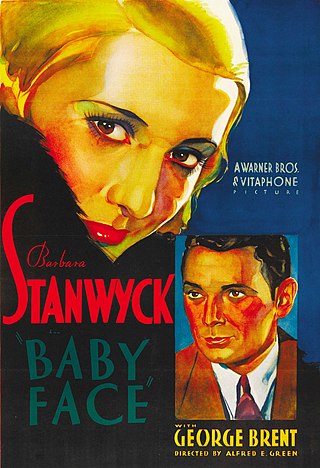
Baby Face is a 1933 American pre-Code-enforcement drama film directed by Alfred E. Green for Warner Bros., starring Barbara Stanwyck as Lily Powers, and featuring George Brent. Based on a story by Darryl F. Zanuck, Baby Face portrays an attractive young woman who uses sex to advance her social and financial status. Twenty-five-year-old John Wayne appears briefly as one of Powers's lovers.
Classic female blues was an early form of blues music, popular in the 1920s. An amalgam of traditional folk blues and urban theater music, the style is also known as vaudeville blues. Classic blues were performed by female singers accompanied by pianists or small jazz ensembles and were the first blues to be recorded. Ma Rainey, Bessie Smith, Ethel Waters, and the other singers in this genre were instrumental in spreading the popularity of the blues.

William C. "Buster" Bailey was an American jazz clarinetist.
Dudley Bowles Murphy was an American film director.
Black and Tan (1929) is a musical short film written and directed by Dudley Murphy. The plot is about a couple in the performing arts; it is set during the contemporary Harlem Renaissance in New York City. It is the first film to feature Duke Ellington and His Orchestra performing as a jazz band, and was also the film debut of actress Fredi Washington. The film is thought to express the emergence of African-American artists in New York City during the Harlem Renaissance.
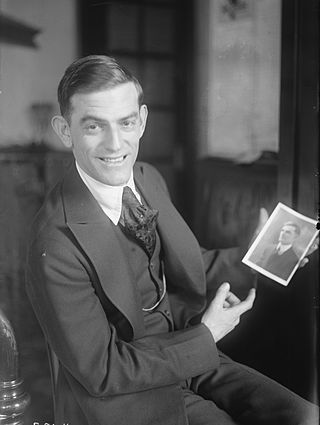
Alfred Aloysous Bernard was an American vaudeville singer, known as "The Boy From Dixie", who was most popular during the 1910s through early 1930s.

St. Louis Blues is a 1958 American film broadly based on the life of W. C. Handy. It stars jazz and blues greats Nat "King" Cole, Pearl Bailey, Cab Calloway, Ella Fitzgerald, Eartha Kitt, and Barney Bigard, as well as gospel singer Mahalia Jackson and actress Ruby Dee. The film's soundtrack uses over ten of Handy's songs, including the title song. In conjunction with the film, Cole recorded an album of W. C. Handy compositions, arranged by Nelson Riddle, and Fitzgerald incorporated "St. Louis Blues" into her concert repertoire.

Blues & Ballads is a 1960 recording featuring Lonnie Johnson on vocals and electric guitar accompanied by Elmer Snowden on acoustic guitar and Wendell Marshall on bass. This was the first commercial recording by Snowden in 26 years. The same ensemble, under the supervision of Chris Albertson, recorded a second volume, Blues, Ballads, and Jumpin' Jazz, released in 1990.

Trouble in Mind is a studio album by American jazz saxophonist Archie Shepp and pianist Horace Parlan, featuring performances recorded in 1980 and released on the Danish-based SteepleChase label. The album consists mainly of early and traditional blues and follows up to their 1977 album of duets on spirituals Goin' Home.
Ruby Smith was an American classic female blues singer. She was a niece, by marriage, of the better-known Bessie Smith, who discouraged Ruby from pursuing a recording career. Nevertheless, following Bessie's death in 1937, Ruby recorded twenty-one sides between 1938 and 1947. She is also known for her candid observations on her own and Bessie's lifestyle.
Jimmy Mordecai also known as James Mordecai was a Harlem-based jazz tap dancer in the 1920s and 1930s. He featured in the 1929 short film St. Louis Blues starred in the 1930 Vitaphone Varieties musical short film Yarmekraw based on James P. Johnson's song of the same name.
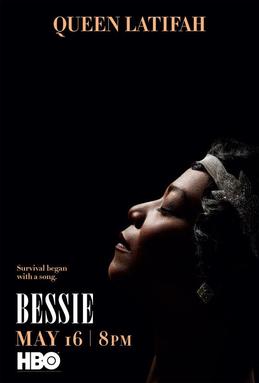
Bessie is a 2015 HBO TV film about the American blues singer Bessie Smith, and focuses on her transformation as a struggling young singer into "The Empress of the Blues". The film is directed by Dee Rees, with a screenplay by Rees, Christopher Cleveland and Bettina Gilois. Queen Latifah stars as Smith, and supporting roles are played by Michael Kenneth Williams as Smith's first husband Jack Gee, and Mo'Nique as Ma Rainey. The film premiered on May 16, 2015. By the following year Bessie was the most watched HBO original film in the network's history. The film was well received critically and garnered four Primetime Emmy Awards, winning for Outstanding Television Movie.
